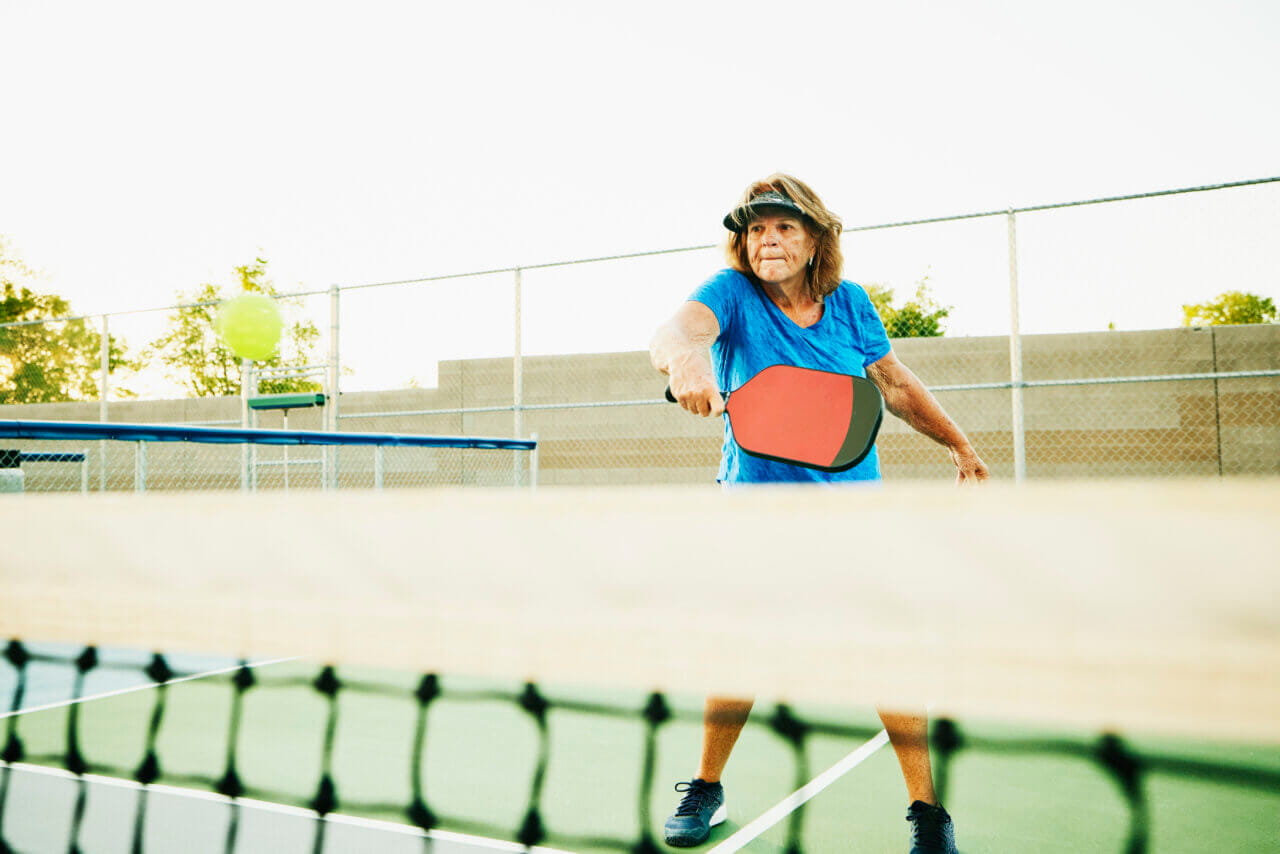The Impact of Pickleball on Mental Health and Well-Being
.jpg?rev=e2ca35a677114fe5bc3418320b1e53a5)
Pickleball is an excellent workout that has a positive impact on physical health. That’s one reason for its tremendous (and rapidly growing) popularity. But just as important to many people is the effect the sport has on their mental and emotional health.
This article looks at the ways pickleball influences overall well-being.
How Exercise Supports Mental Health
Before considering pickleball specifically, it’s helpful to understand how any exercise benefits mental health. People who work out regularly tend to experience the following:
- Endorphin release. Exercise triggers the release of mood-lifting chemicals that contribute to feelings of happiness and well-being.
- Stress reduction. Regular physical activity can lower levels of the stress hormone cortisol.
- Physical health improvements. Exercising can improve your strength, flexibility, agility and overall fitness, which, in turn, makes you feel better about yourself and life in general.
With that as the backdrop, pickleball seems especially effective at supporting good mental health and promoting a sense of wellness.
Pickleball’s Powerful Appeal
Why is pickleball such a fun, fulfilling sport and so good for your mental health? Its popularity and positive impact stem from multiple characteristics, including:
- Accessibility and inclusivity. It’s easy to learn pickleball and people of all ages and abilities can play.
- Social interaction. Pickleball players love the game action but often enjoy their interactions with fellow enthusiasts before and after matches just as much.
- Sense of accomplishment. More time on the pickleball court invariably leads to a better understanding of the game, increased skill and growing confidence.
- Cognitive stimulation. Pickleball requires strategic thinking to anticipate an opponent’s moves, quick reflexes and good hand-eye coordination. After a match, players tend to feel that they have great physical and mental workouts.
- Flow state. Pickleball’s fast-paced action requires players to be “dialed-in,” promoting the so-called flow state where they experience a pleasurable deep, all-consuming engagement in the activity.
- Feeling of belonging. The pickleball community as a whole is very welcoming and focused on camaraderie. Matches can be competitive, but maintaining a sense of belonging tends to be the top priority regardless of the outcomes.
Ultimately, pickleball players can get a serious workout without taking themselves or the game too seriously. Matches tend to leave them feeling pleasantly spent and happily connected.
Pickleball: Minor Investment, Major Return
One more reason pickleball has such a positive impact on mental health is that there is little at stake and so much to gain. The minimal cost of a pair of supportive tennis shoes, a paddle and a ball opens the door to an exciting, invigorating sport and involvement with a warm, welcoming community. And with more pickleball courts being built every day, the travel time to a site continues to shorten.
As a result, the game is experiencing explosive growth. People are playing informally more frequently, and amateur and even professional leagues are also forming. But regardless of your level, you can be assured that getting out on the court improves your health and well-being in many ways.
If you’re considering the sport, it’s a good idea to talk with your healthcare professional to confirm you’re healthy enough to play. You can find a Baptist Health provider using our online directory.
Next Steps and Helpful Resources
Learn More About Mental Health at Baptist Health
Pickleball Pros and Cons for Your Health
Health Benefits of Pickleball
Is Pickleball Good Exercise?


